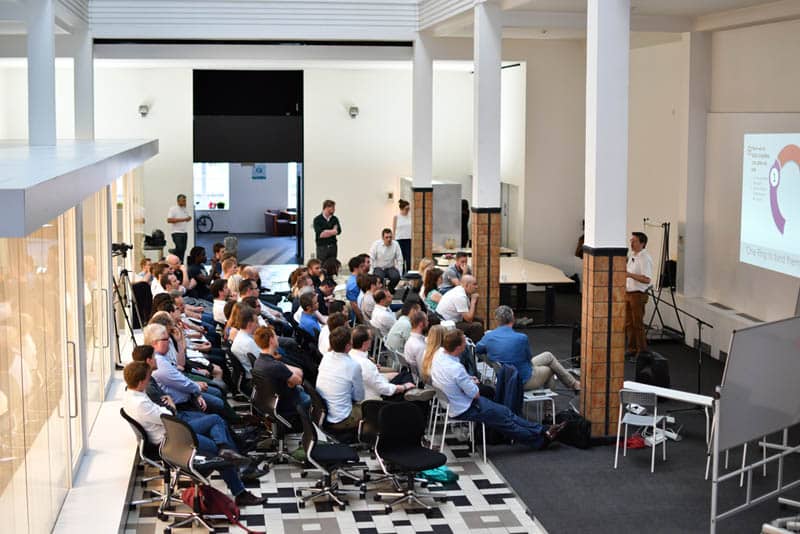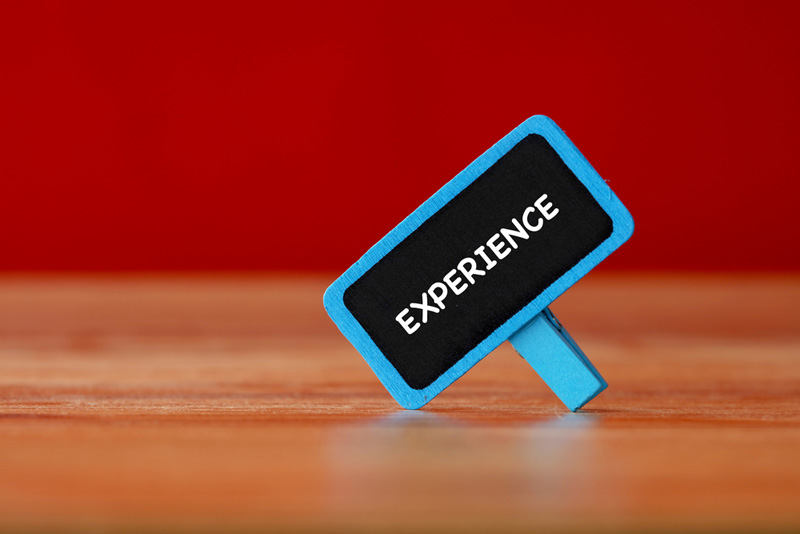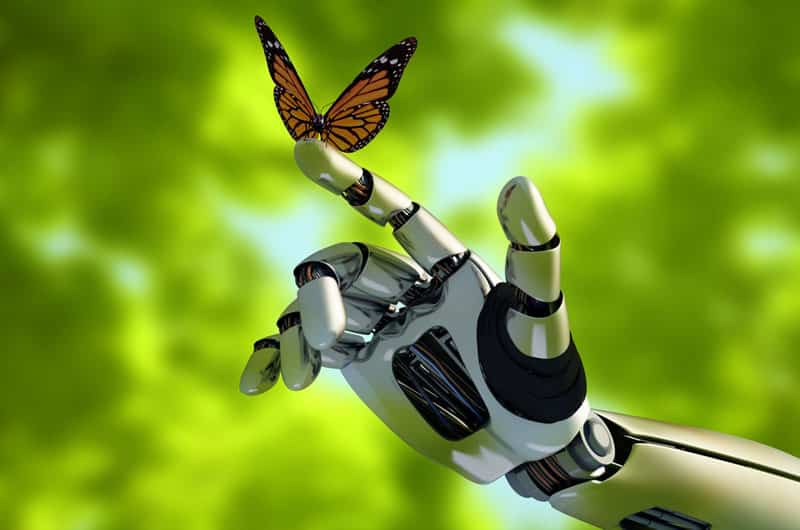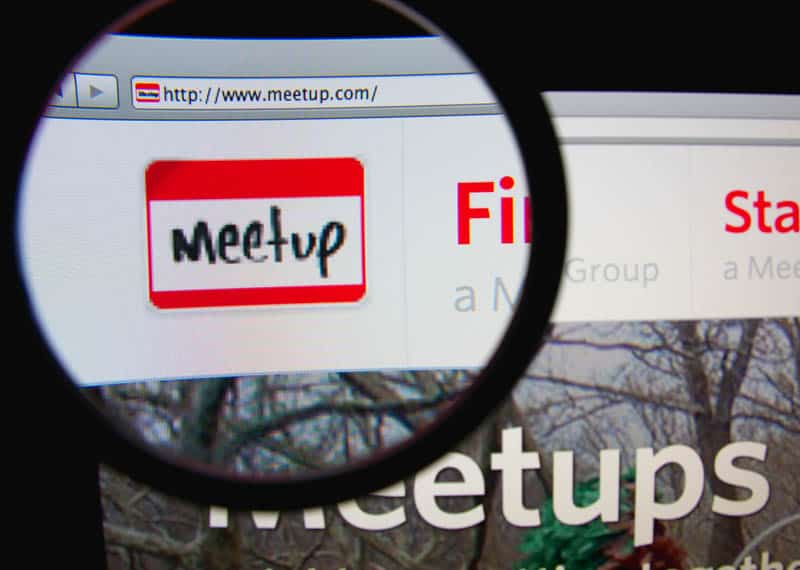Big Data and Ethics : first sucessful meetup at DigitYser in Brussels
By Pierre-Nicolas Schwab •
On 15 June 2017 my friend Philippe Van Impe gave me the opportunity to organize the first meetup in his newly opened Big Data temple in Brussels : DigitYser. And what a success ! The topic of this first Meetup…
Facebook doesn’t tell you really why you get targeted advertising
In the data world, the topics of transparency, privacy and ethics are more and more discussed. As we predicted a year ago, this may well be the next revolution in data science. We ran an experiment to understand the level…
GDPR : what does data portability really mean ?
The General Data Protection Regulation (GDPR) enforces the concept of data portability. What it means remains however opaque for most of us as the concept behind data portability can't be easily applied and doesn't really correspond to any expressed or…
New Twitter conditions give you a glimpse into how and which personal data collected
On 20 May 2017 Twitter sent an email to its users announcing that new terms and conditions apply. These changes largely apply to data usage, personalization and targeted advertising. One can't really say it's a revolution, but at least it's…
Personalized car insurance has unexpected effects on customers behaviors
A recent article in a French magazine sheds light on progresses made by insurance company Allianz in the field of personalized car insurance. Like many other firms in the field, Allianz believes in the usefulness of telematic units (black boxes)…
Youtube recommendations : user experience and algorithmes better than ever
By Pierre-Nicolas Schwab •
If you are addicated to YouTube, chances are high their recommendation systems play an important role in your addiction. Our deep interest in recommendation engines and algorithms makes us naturally gravitate towards the YouTube app to assess their latest developments.…
Market research : data strategy for European broadcasting organizations
On the occasion of the 2nd annual EBU Big Data week held in Geneva on 21 and 22 March 2017, the results of a pilot survey on the state of Big Data among broadcasters was revealed. The survey results are…
Recommendation algorithms : the myth of filter bubbles at stake
We've already discussed filter bubbles on this blog, a rather technical term that describes the negative effet of algorithms on our digital life. For more information read this thorough article. Whether or not filter bubbles really exist is still debated…
Artificial intelligence: are algorithms biased by nature ?
I attended a workshop at the Maastricht European Centre on Privacy and Cybersecurity where I met Prof. Alessandro Mantelero of Polytecnico di Torino. Prof. Mantelero is well known as a specialist in the protection of personal data, which has become…
GDPR compliance: are your algorithms ethical?
On your journey to GDPR compliance (General Data Protection Regulation) you will certainly need some help and some guidance to do the right things avoid being fined. We all agree, among specialists, that GDPR implementation may be delayed to let…
Emotions detection in advertising: consumers still reluctant to give their data
Advertisers have always been among the most creative professionals; not only on the content part but also in their use of the newest technologies to make their advertising messages more efficient. The use of eye-tracking dates back to decades, whereas…
Market research : Norwegians don’t want personnalized insurance
Insurance companies are getting increasingly personal and thanks to digitization they are proposing new tailor-made products. Two main applications can be found : Personalized health insurance Personalized car insurance We have explored in recent articles the different aspects of such…
Can Big Data become a technique to promote transparency and equity
On this blog I often took a pessimistic look at Big Data, asking for a revolution in how firms build and use their algorithms. I called for instance for opening up the models behind recommendation algorithms and wondered whether our…
How data vulnerability affects firms’ performance and how to remedy it
Everyone talks about privacy. But what is it really ? A recent article in French economical journal "La Tribune" built upon two recent BCG reports (here and there) on data protection and privacy to question firms' practices around data privacy…
Academic research debunks the myth of filter bubbles
The interest for the "Filter Bubble" phenomenon reached an all-time high after 2016 US presidential elections (see our article). The existence of filter bubble was hypothesized by Eli Pariser in 2011, yet it remains at the center of debate on…
How US elections shed light on the filter bubble phenomenon
Just do a Google search on "Filter bubble" and you'll be surprized of the many results returned. The recent US presidential elections have shed light on this phenomenon first hypothetized by Eli Pariser in 2011, and subject to much debate…
Customer satisfaction, customer experience and big data
Improving customer experience is priority #1 of top executives for the next 12 months (Lemon and Verhoef 2016). At the same time Big Data is on every serious company's agenda. How can Big Data contribute to creating a customer experience…
The role of Big Data on society : EBU conference
With fellow colleagues of EBU, I organized last week a conference entitled "Big Data and Society"at RTBF, the French-speaking public broadcasting organization of Belgium. As I wrote on EBU website, this event aimed at gathering together professionals from the broadcasting industry…
How novelty and serendipity improve customer satisfaction
Product recommendations have enabled E-commerce websites to become a place where mass marketing converges with niche marketing. Recommendations are pivotal in enabling less popular products to be discovered by people who are the most likely to like them : this…
Are we living in the matrix ?
Are we already living in the matrix ? That question may seem odd to most of you. Not to some unidentified silicon valley billionaires who are secretly funding scientists to find a way to escape the matrix. I've been thinking…
Vitality offers Apple watch to monitor your activity : one more insurance into big (health) data
A few weeks ago we were discussing on this blog the trend of the insurance market to collect very intrusive data. I had the opportunity to raise my concerns at several conferences and got the impression that people were not…
Artificial Intelligence : why we need respectful algorithms
Developments of artificial intelligence are a source of concern for several reasons. First of all AI threatens jobs, privacy and our perceived freedom. Second, 99,99% of the population doesn't really understand what AI is and where it originates. In today's…
Big Data : 4 types of filter bubbles
The question of the existence of filter bubbles (also called cognitive bubbles) is central to the fields of Big Data and algorithm design. Among different books, I was very much influenced by the Dominique Cardon's book on algorithms and society.…
Big Data and Ethics : how recommendations work at Meetup.com
There have been many interesting talks at the RecSys 2016 conference in Boston. Yet, the presentation given by Evan Estola of Meetup was especially inspiring to me. It wasn’t the regular technical speech you may expect in that kind of…
Big Data : why ethics issues need to be addressed urgently
Artificial Intelligence is increasingly present in our daily lives : speech recognition, automatic translation, personal assistants, chatbots, recommendation algorithms. These technological advances are also subject to criticism and questions on ethics. What happens with our data, will algorithms govern us,…
Predicting consumers’ behaviors: the importance of explicit feedback
In today's article I'd like to present a new perspective on the evolution of consumer behaviors' modelization in the last 30 years or so. These modelizations are windely used in today's world of Big Data and recommendation algorithms. Introduction Understanding…
RecSys 2016 conference : trends in recommendation on TV
The ACM Recommender Systems conference opened on 15 September 2016 in Boston (MA) with the RecSys TV workshop, one day dedicated to recommender systems in the broadcasting sphere. Presentations by Verizon, Comcast, Netflix, the University of Lisbon were the highlights…
My summer readings : the outstanding, the good and the worse
Summer is usually the time for me to rejuvenate my creativity and get prepared for the second part of the year to come. I love to chain-read to encourage ideation. This year I packed my beloved Kindle with a few…
Why you should not wear health devices
So far insurances had to rely on your declarative questionnaires to evaluate the risk you represented. Those have been found to be very intrusive; so intrusive in fact that Belgian consumers' defense organization Test Achats has urged insurance companies to…
Users change their behaviors to please algorithms
Technology and especially algorithms have invaded the public space. According to Alain Damasio “Freedom is not a desirable concept anymore”. Security and ease-of-use now comes first, as the success of recommendation engines tends to prove. We are surrounded by computer…
Facebook : how do people perceive NewsFeed curation algorithm
Curation algorithms aren’t fundamentally different from recommendation engines (see the article we just published on the latter here). They select what you ought to see, for instance on your Facebook Newsfeeds. Two studies have addressed customers’ perception of automated curation…
Recommendation algorithms : how big is the Filter Bubble in actuality
Recommendation algorithms have been accused to trap users in a filter bubble, to promote the balkanization of information and hence to reduce serependity. The biggest opponent of recommendation engine is probably Eli Pariser who invented the very term of “filter…
Big Data: let your customers improve your segmentation
Companies are keen on obtaining as much data as possible on their customers to improve behavioral profiling. Yet, few companies harness the power of their customers to enrich their data with new types of data, allowing new segments to be…
1 month using TOR : it ain’t easy to protect his privacy
Those of you who watched Ed Snowden’s movie “Citizen Four” are certainly aware of privacy issues that come with the use of the Internet. Privacy was first a value of the internet and progressively became a myth. The initial libertarian…
Let’s reinvent recommendation engines
Recommendation engines (a series of algorithms aiming at targeting what you'd like best to see / get / purchase / you name it) are everywhere. You use them without knowing it. The first recommendation engine is actually Google (or any…
Liberals share less serious content on Facebook than conservatives
In my quest to understand how algorithms limit our freedom, my attention was caught by a piece of research published in June 2015 in Science. This research was funded by Facebook (which is an important piece of information) and aims…
 The blog of the Marketing Agency
The blog of the Marketing Agency

































